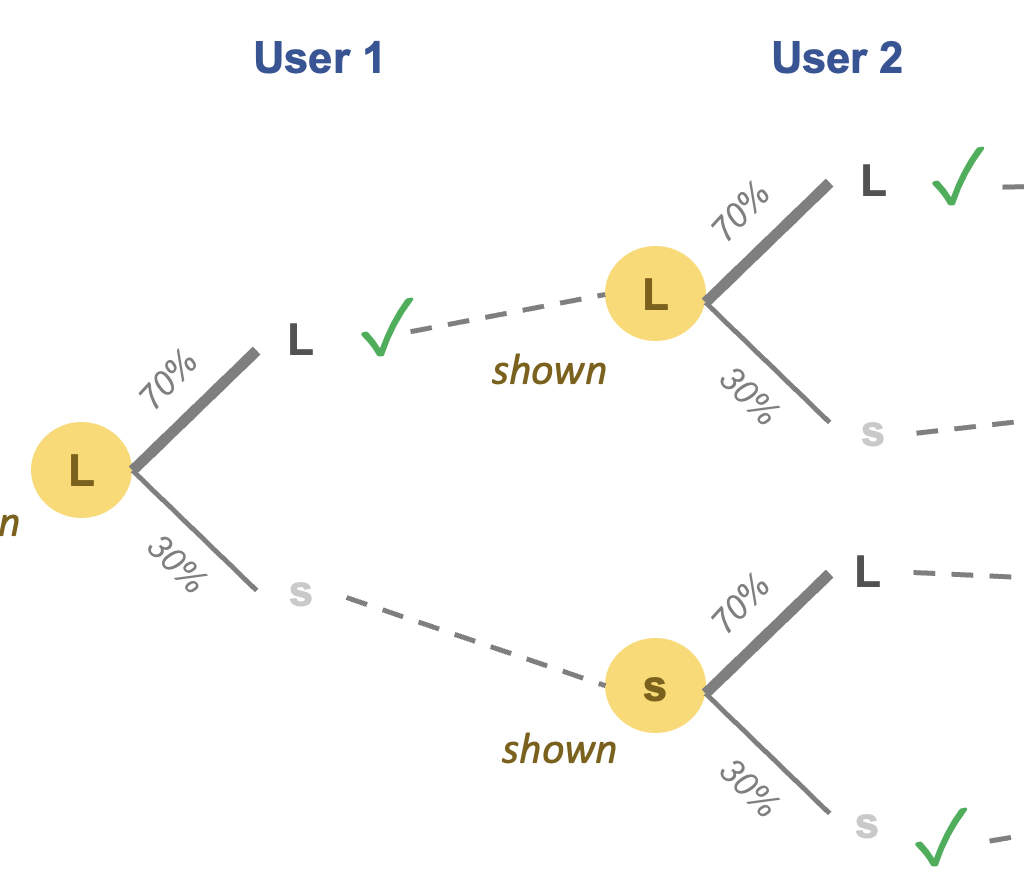Moviepass reminds me of Groupon
Kaiser Fung, founder of Principal Analytics Prep, explores the business model behind Moviepass, the popular but money-losing movie subscription company. Counterfactual thinking, and understanding consumer behavior are key parts of the analysis.


Older readers might not have heard of the company MoviePass but millennials likely have, as they account for half of the 2 million subscribers (link).
Moviepass is basically Groupon, which we debunked on this blog years ago. Scratch that. Moviepass is worse than Groupon. At the start, Groupon had at least some cheerleaders but Moviepass sounds dead on arrival.
Recall: Groupon is the digital coupon startup that offered an incredible deal to consumers - a typical coupon for a restaurant will let you dine there at half price or more. So for a $100-meal, the restaurant gets paid $50, but Groupon also claims it is bringing diners to the restaurant and takes a revenue share, meaning the restaurant takes in $25 before paying rent, food costs, people costs, etc.
Groupon definitely has a great deal for consumers but the restaurants got the short end of the stick. The deal only makes sense if the coupon users would otherwise not have dined at the restaurant. If the coupon users are regular diners, then the restaurant loses $75 for every such table! You'd need three new diners to cover the loss of one regular diner (that only gets the restaurant to break even on the offer cost). In Numbersense, I use this example to illustrate counterfactual thinking.
Worse still, the regular diner has a higher chance of wanting that Groupon, just because s/he already likes the product.
***
What is Moviepass? It is a monthly subscription plan for movie-going. It made the news in 2017 when the company dropped the monthly subscription price to $9.95, and grew subscribers 100-fold to 2 million. For $9.95 a month - roughly the average price of one movie ticket, subscribers are allowed to see one movie a day. Yes, this is insane.
It is even more insane. Moviepass pays the movie theaters full price for the tickets so the only way it makes any profit is if the subscriber does not watch even one movie a month. They would need subscribers who pay them monthly but don't watch movies.
Exactly the opposite should happen. The more movies one watches, the more lucrative is this subscription plan, and the more likely one will sign up. If movies is not a big part of your life, you're just not going to buy a subscription in Moviepass. If a subscriber watches one movie a day (the maximum allowed), then Moviepass loses $290 each month for that customer, month after month. I also know a subscriber who has a habit of just booking tickets and not using them. Just for giggles, he says.
***
There is speculation that maybe the cinemas eventually will strike a deal with Moviepass to sell them tickets at a discount. If cinemas were to do that, they become like the restaurant owners who bought into the Groupon scheme. The cinemas might think this brings them new customers. The reality is that it's their most loyal customers who will sign up most enthusiastically.
For each loyal customer who sign up, the cinemas would lose revenues on the discounting. If they gave Moviepass a 50% discount, then instead of getting $10 a ticket from these loyal movie-goers, they get $5 a ticket. To pay for that discount, Moviepass has to deliver one additional ticket from a newbie who would otherwise not have gone to the movie. But the loyal customer may watch say one movie a week but the newbie might watch one movie a month. So the cinemas might require four newbies to pay for the discounting of one loyal customer!
Moviepass is no doubt a great deal for movie lovers. But how long can this last?



